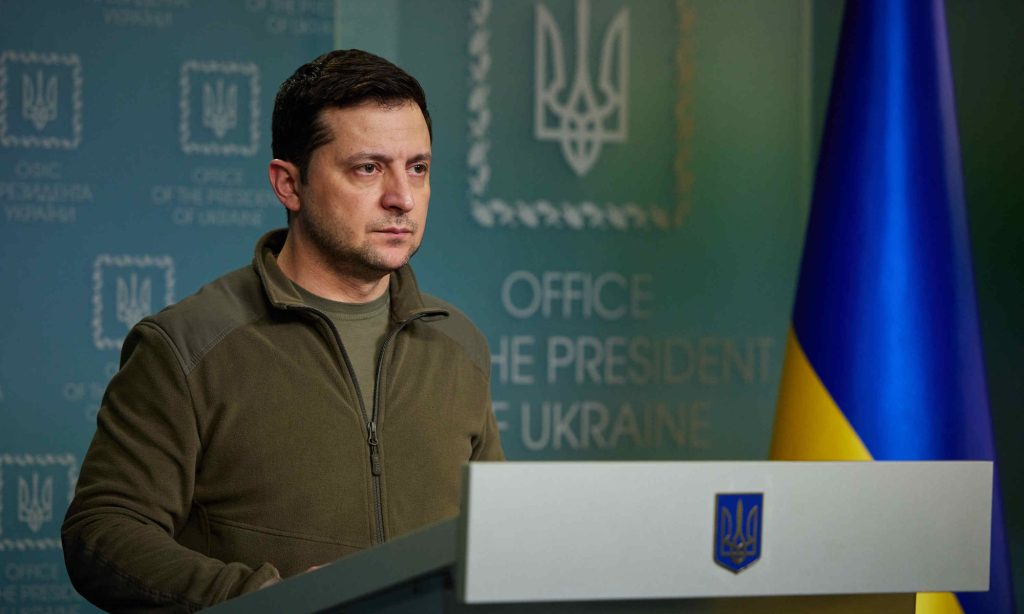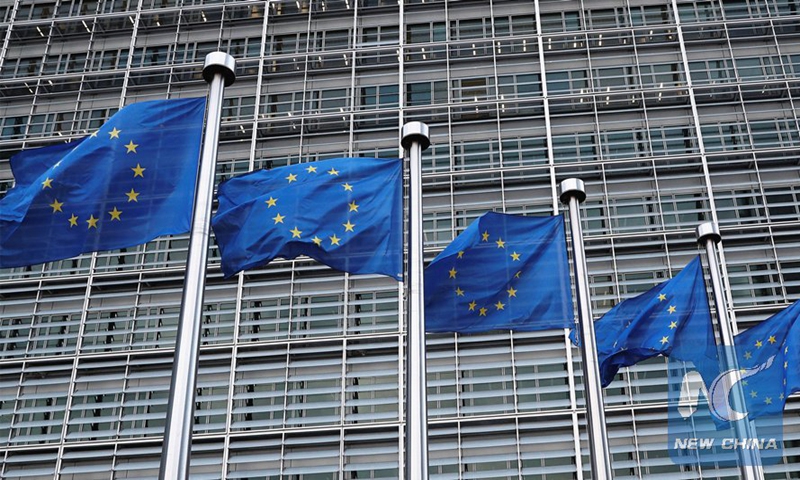Address by Chinese President Xi Jinping at Session II of 19th G20 Summit
Chinese President Xi Jinping on Monday delivered an important speech at the Session II of the 19th G20 Summit under the title "Working Together for a Fair and Equitable Global Governance System."
Following is the English version of the full text of the speech:
Working Together for a Fair and Equitable Global Governance System
Remarks by H.E. Xi Jinping
President of the People's Republic of China
On Reform of the Institutions of Global Governance
At Session II of the 19th G20 Summit
Rio de Janeiro, November 18, 2024
Your Excellency President Luiz Inacio Lula da Silva,
Colleagues,
It has been 16 years since the G20 Summit was launched. Over the years, we have worked in solidarity to tackle the global financial crisis, promoted cooperation on global economy, finance and trade, and steered the world economy onto the track of recovery. We have worked in concert to face global challenges head-on, be it climate change or the COVID-19 pandemic, spearheaded technological transformation, and kept renewing the G20's responsibilities and missions. We have worked in unison to improve global governance, strengthened macroeconomic policy coordination, pressed ahead with reforming the international financial institutions, and championed international cooperation in the spirit of equal consultation and mutual benefit.
Proceeding from a new starting point, the G20 needs to build on its past achievements and continue to act as a force to improve global governance and move history forward. We should keep in mind that mankind lives in a community with a shared future, see each other's development as opportunities rather than challenges, and view each other as partners rather than rivals. We should observe the basic norms of international relations underpinned by the purposes and principles of the UN Charter and defend the international order based on international law. In light of the G20's mandate, we could build greater international consensus in the economic, financial, trade, digital and eco-environmental fields, among others, to improve global governance and promote an equal and orderly multipolar world and a universally beneficial and inclusive economic globalization.
First, we need to improve global economic governance and build a world economy characterized by cooperation. We have developed the G20 comprehensive growth strategies and established a framework for strong, sustainable, balanced and inclusive growth. We should stay committed to strengthening global economic partnerships, reinforcing macro policy coordination in fiscal, financial, monetary and structural reform policies, cultivating new quality productive forces, and raising total factor productivity, in a bid to open up more possibilities for the global economy. It is important to make good use of the G20 Finance Ministers and Central Bank Governors Meetings, let them serve as a ballast for macro policy coordination, and foster an open, inclusive, and nondiscriminatory environment for international economic cooperation. As main creditors, international financial institutions and commercial creditors need to take part in debt reduction and suspension for developing countries. It is also important to create a clean business environment by upholding a zero-tolerance stance against corruption, stepping up international cooperation on fugitive repatriation and asset recovery, and denying safe haven to corrupt officials and their assets.
Second, we need to improve global financial governance and build a world economy characterized by stability. To increase the voice and representation of developing countries, the World Bank should carry out shareholding review and the International Monetary Fund should carry out quota share realignment in line with the agreed timeframe and roadmap. Joint efforts are needed to keep the international financial market stable and prevent negative spillover of domestic monetary policy adjustments. Developed countries should fulfill their responsibilities in this regard. It is important to enhance the systems for financial risks monitoring, early warning and handling, reinforce cooperation in such areas as digital currency and taxation, and strengthen the global financial safety net. The G20 Sustainable Finance Roadmap should be implemented at a faster pace to better meet the green financing needs of developing countries.
Third, we need to improve global trade governance and build a world economy characterized by openness. We should place development at the center of the international economic and trade agenda, and steadily advance trade and investment liberalization and facilitation. We should press ahead with reforming the World Trade Organization (WTO), oppose unilateralism and protectionism, restore the normal functioning of the dispute settlement mechanism as soon as possible, include the Investment Facilitation for Development Agreement into the WTO legal framework, and reach early consensus on the e-commerce agreement. We should work actively to keep the WTO rules relevant, both addressing long-pending issues and exploring the formulation of new, future-oriented rules, to enhance the authority, efficacy and relevance of the multilateral trading system. It is important to avoid politicizing economic issues, avoid fragmenting the global market, and avoid taking protectionist moves in the name of green and low-carbon development. Two years ago, China and Indonesia, together with some other countries, launched the Initiative of International Cooperation on Resilient and Stable Industrial and Supply Chains, calling for industrial and supply chain partnerships that are more equal, inclusive and constructive. We stand ready for closer cooperation with all sides on this initiative.
Fourth, we need to improve global digital governance and build a world economy characterized by innovation. We should strengthen the function of the G20 Digital Economy Ministers' Meeting, and let it play a leading role in digital transition, the deep integration of the digital economy and the real economy, and rules-making in emerging areas. We should step up international governance and cooperation on artificial intelligence (AI), to make sure that AI is for good and for all, not a game of the rich countries and the wealthy. China hosted the 2024 World AI Conference and High-Level Meeting on Global AI Governance, and issued the Shanghai Declaration on Global AI Governance. Together with other parties, China promoted the adoption of a UN General Assembly resolution on enhancing international cooperation on AI capacity-building. China will hold another world AI conference in 2025 and welcomes the participation of fellow G20 members.
Fifth, we need to improve global ecological governance and build a world economy characterized by eco-friendliness. We should honor the principle of common but differentiated responsibilities, and fully and effectively implement the Paris Agreement and the Kunming-Montreal Global Biodiversity Framework for the sake of man's harmonious coexistence with nature. Developed countries should provide developing countries with the necessary funding, technology and capacity-building support. The recently concluded UN Biodiversity Conference produced important consensus. We should jointly support the ongoing and upcoming UN conferences on climate change and desertification in achieving positive outcomes. Energy transition and energy security is a major issue. We should follow the approach of "establishing the new before abolishing the old," and replace traditional energy with clean energy in a stable and well-ordered way, as we expedite the green and low-carbon transition of the world economy. China stands ready to continue to deepen international cooperation with all sides on green infrastructure, green energy, green mining and green transport, and will provide support to developing countries to the best of its ability.
Global security governance is part and parcel of global governance. The G20 should support the UN and its Security Council in playing a greater role, and support all efforts conducive to the peaceful settlement of crises. To deescalate the Ukraine crisis and seek a political settlement, we should follow the principles of no expansion of the battlefields, no escalation of hostilities and no fanning flames. China and Brazil, together with some other Global South countries, launched the group of "friends for peace" on the Ukraine crisis, with the goal of bringing together more voices for peace. The fighting in Gaza has inflicted deep suffering on the people. It is urgent for all sides to stop fighting, end the war, and provide support for easing the humanitarian crisis in the region and for postwar reconstruction. The fundamental way out of the cycle of Palestinian-Israeli conflict lies in the implementation of the two-State solution, the restoration of Palestine's legitimate national rights, and the establishment of an independent State of Palestine.
Colleagues,
Let us renew our commitment to the founding mission of the G20, and make a fresh start from Rio de Janeiro. Let us carry forward partnership, practice true multilateralism, and usher in a better future of common development and prosperity.



